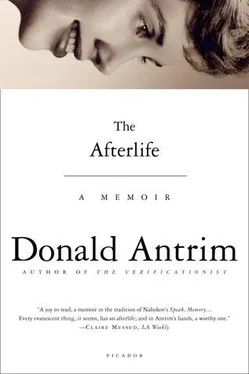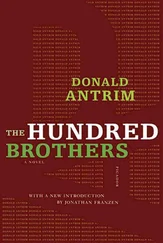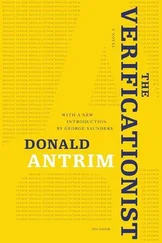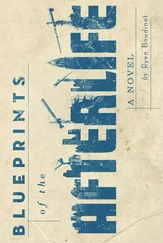I went to the telephone. I called the number for the Swedish president of Dux Interiors in North America. What in the world was I going to say to him? What did I want from him?
“Hello?”
“Hello. Is this Mr. Gustafsson?”
“Speaking.”
“Hi. My name is Donald. I’m a customer? I have a bed that’s being picked up and returned.”
“Returned?”
“Yeah, well.”
“You don’t like the bed?”
“I like the bed. I like the bed. It’s just that there are problems.”
“Problems?”
The large man stepped forward. He took control. He said to me, “Let me talk to Bo.”
I gave the large man the phone. He stood in my ravaged, empty bedroom and did the talking. He talked for a long time. When he was finished speaking with the president, he passed me my phone. He told me, “Bo wants to talk to you.”
“Hello?”
“Hello. Is it Donald? Hello. Let me ask you something. What size bed do you have?”
“Queen.”
“Ah. And you say it is too bouncy?”
“That’s part of it.”
“Hmm.”
“It’s reverberant.”
“Reverberant? Explain.”
“I mean you can feel everything. When you’re on the bed. When you’re in bed. You feel too much. I feel too much.”
“Well. I don’t know what to tell you. There are many springs in that bed. That is how it works. All the springs work together. There is going to be some movement. Maybe to get a good night’s rest you need your own sleeping area. Maybe you need the king.”
“I don’t have room for a king.”
“I don’t know what to tell you. You have to decide if you want to keep the bed or not. I cannot decide for you.”
“I know.”
“The bed is a good bed. I am sure that if you keep it you will get used to it. These beds take some getting used to.”
“I know.”
“Good luck.”
I hung up the phone. I saw the men standing in my house. I saw the crated bed by the door. I saw the sunlight coming through the windows. I saw myself standing there seeing these things. I was a man whose need for love and sympathy had led him to telephone a Swedish executive in the middle of the morning. Perhaps, at some point, the story of my mother and the bed becomes the story of my mother and father, the story that remains to be told, the story, you could say, of the queen versus the king.
The bed went away. I let it go. R. was right. I could get another bed later. I stood in my empty room. In place of the bed was — shame? In place of the bed was a question, a question that is at once too simple and too complicated to answer.

For a time when I was a boy, my father’s brother, my uncle Eldridge — a man, as I think of him now, both like and unlike other men — became my friend and companion. Today I cannot think of my uncle without remembering his car and the things he carried in it. In the backseat he kept a bicycle with the front wheel removed. I never saw him put the wheel on and ride. Next to the bicycle was a golf bag holding woods and irons, balls, tees, pencils for scoring, golf gloves, a visor. Adjacent to the clubs were a couple of beach chairs folded and jammed between the car’s front and backseats, and wedged on the seat were towels and a cooler chest, into which he loaded, every day or two, ice, beer, and strawberry, grape, and orange sodas. In the car’s trunk, as I remember it, were his tennis racquets with their protective covers zippered on, and a tennis bag like those the pros carry onto the court, stuffed with balls in cans, cotton sweatbands, shorts, shirts, tennis shoes, socks, and a hat. There was a football for playing catch at the beach, and a pump for pumping up the ball. There were baseball mitts and a baseball; and there was fishing gear — a takedown rod stored in its elegant cylindrical case, and a small tackle kit packed with hooks, lures, and line — and there was swimming and, sometimes, I recall, scuba equipment, including a mask, fins, a snorkel, a dive knife, a depth gauge, a regulator, a buoyancy vest, a weight belt, and, shoved up into the back of the trunk — though in order to make space for it, he might have been forced, in a gesture of triage, to sacrifice other items — a small tank that actually belonged to me. In the event that he had occasion to dress nicely on land, he had what was minimally required. Pressed trousers. A clean shirt. A tie, rolled up. Changes of underwear. Thin socks. A belt. Black shoes with shoe trees inserted in them. Shoe polish. A rag for polishing. There was a shaving kit holding a razor and soap, shampoo, talcum powder, a toothbrush and toothpaste, a hairbrush and a comb, and plenty of the English Leather cologne he splashed on at intervals throughout his day. There was a battery-operated portable record player, and Everly Brothers, Clancy Brothers, and Smothers Brothers records to play on it. For reading, he carried a collection of hunting, tennis, golf, and archery magazines, Playboy and Penthouse, and books by D. H. Lawrence, Henry Miller, and Lawrence Durrell. For shooting, he kept, in a space near the tire well, a.22 pistol in a leather case; and sometimes there was a double-barreled shotgun; and, when he had the shotgun packed in the car and planned to do some shooting with it, there might also be a cardboard box containing clay pigeons, many of which I threw for him, using a spring-loaded contraption designed for manually launching the fragile yellow disks. There was no shortage of ammo. And there were many things relating to the maintenance of the car in specific and to safe travel in general: spark plugs, antifreeze in a jug, motor oil in a can, socket wrenches, jumper cables, sulfur flares. There was tanning lotion; and there were Band-Aids and other medical supplies, including an Ace bandage; and writing materials and postage stamps; and, tucked here and there in nooks and crannies, golf shoes, an umbrella, a rain poncho, a thermos, a Swiss Army knife, bottle and can openers, a pair of binoculars, a Frisbee.
On days off from his job, loading Canada Dry delivery trucks at a warehouse near the airport in Sarasota, Florida, he used to golf or lie on the beach or play tennis at the municipal courts with his friends from work, and sometimes he’d drive to a secluded place in the woods, where he would set up one of the folding beach chairs, place beside it the cooler and a handful of his books and magazines, put a record on the record player, and sit listening to folk music, flipping through the magazines, looking at the world through his binoculars, sipping beer, and, every now and then, shooting pistol rounds at empty cans he’d propped on tree branches or rotting fence posts in the distance. One day, according to my mother, state and federal agents surrounded him, then handcuffed him and took him into custody, because he had been spotted by surveillance teams sent in advance of President Nixon, who was about to land in Sarasota on Air Force One . When the agents took him to the local police station, the chief of police told them, “Oh, that’s just Bob Antrim, he doesn’t mean a bit of harm,” which was true enough; and so they promptly let him go.
His name was Robert Eldridge Antrim. He was known in his family as Eldridge to distinguish him from his father, also Robert, and among his friends as Bob, but he was also occasionally called Sam. The name Sam in relation to my uncle first appeared in the mid-fifties, in the sports pages of a Sarasota newspaper, in an article glorifying the Sarasota High School golf team, for which Eldridge was a star player. In fact, it was Eldridge who had reported his name as Sam, presumably because he had grown tired of Eldridge. It was a joke; and the joke stuck, though by the end of his life the only person still calling him Sam was my mother, who was with him at the Sarasota Memorial Hospital when he died, in 1992, of acute alcohol poisoning. When I was young, I knew my uncle as Eldridge. For a few years, when I was a teenager, he was a hero to me. Today, when I think of him, he is Bob, and I think this transformation from Eldridge to Bob by way of Sam has something to do with the effect he had on my life, in particular the effect of a single incident that took place when I was fourteen years old.
Читать дальше













